|
Books Should Be Free Loyal Books Free Public Domain Audiobooks & eBook Downloads |
|
|
Books Should Be Free Loyal Books Free Public Domain Audiobooks & eBook Downloads |
|
Science |
|---|
|
Book type:
Sort by:
View by:
|
By: Peter C. Welsh | |
|---|---|
 Woodworking Tools 1600-1900
Woodworking Tools 1600-1900
| |
By: Woods Hutchinson (1862-1930) | |
|---|---|
 Preventable Diseases
Preventable Diseases
| |
 The Child's Day
The Child's Day
The Child's Day, The Woods Hutchinson Health SeriesBy Woods Hutchinson, A.M., M.D. FOREWORD If youth only knew, if old age only could! lamented the philosopher. What is the use, say some, of putting ideas about disease into children's heads and making them fussy about their health and anxious before their time? Precisely because ideas about disease are far less hurtful than disease itself, and because the period for richest returns from sensible living is childhood--and the earlier the better. It is abundantly worth while to teach a child how to protect his health and build up his strength; too many of us only begin to take thought of our health when it is too late to do us much good... | |
 A Handbook of Health
A Handbook of Health
The Woods Hutchinson Health Series, A HANDBOOK OF HEALTHBy Woods Hutchinson, A. M., M. D. PREFACE Looking upon the human body from the physical point of view as the most perfect, most ingeniously economical, and most beautiful of living machines, the author has attempted to write a little handbook of practical instruction for the running of it. And seeing that, like other machines, it derives the whole of its energy from its fuel, the subject of foods--their properties, uses, and methods of preparation--has been gone into with unusual care... | |
By: Robert W. Chambers (1865-1933) | |
|---|---|
 The Gay Rebellion
The Gay Rebellion
| |
By: Robert Falcon Scott (1868-1912) | |
|---|---|
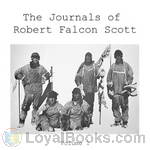 The Journals of Robert Falcon Scott
The Journals of Robert Falcon Scott
Capt. Robert F. Scott's bid to be the leader of the first expedition to reach the South Pole is one of the most famous journeys of all time. What started as a scientific expedition turned out to be an unwilling race against a team lead by R. Admunsen to reach the Pole. The Norwegian flag already stood at the end of the trail when Scott's party reached their target. All the five men of the Scott expedition who took part in the last march to the Pole perished on their way back to safety. Robert F. Scott kept a journal throughout the journey, all the way to the tragic end, documenting all aspects of the expedition... | |
By: Robert F. Young (1915-1986) | |
|---|---|
 Star Mother
Star Mother
| |
 Collector's Item
Collector's Item
| |
 The Servant Problem
The Servant Problem
| |
By: Katharine Elizabeth Dopp (1863-1944) | |
|---|---|
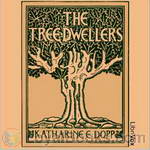 The Tree-Dwellers
The Tree-Dwellers
Katharine E. Dopp was well-known as a teacher and writer of children’s textbooks at the turn of the 20th Century. She was among the first educators to encourage the incorporation of physical and practical activity into the elementary school curriculum at a time when such activities were becoming less commonplace in a child’s home environment. The Tree-Dwellers – The Age of Fear is the first in a series of elementary school texts written by Ms. Dopp that focus on the anthropological development of early human groups... | |
By: Oliver Lodge (1851-1940) | |
|---|---|
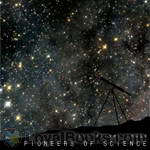 Pioneers of Science
Pioneers of Science
This book takes its origin in a course of lectures on the history and progress of Astronomy arranged for Sir Oliver Lodge in the year 1887. The first part of this book is devoted to the biographies and discoveries of well known astronomers like Copernicus, Brahe, Kepler, Galileo and Newton. In the second part, the biographies take a back seat, while scientific discoveries are discussed more extensively, like the discovery of Asteroids and Neptune, a treatise on the tides and others. | |
By: Hamilton Wright Mabie (1846-1916) | |
|---|---|
 Essays on Work and Culture
Essays on Work and Culture
The author investigates the world of work against a backdrop of culture. Each of the 25 essays focuses on one aspect of the topic. For example, the first essay, "Tool or Man?" looks at two views of man. One is that of strength as the provider of security. The other is that of aesthete, as an enthusiast of the arts or academics or religion. In our culture, provider of security is the winner every time. Man as a source of multiple talents cannot be allowed. As the author frames the argument, "Specialisation has been carried so far that it has become an organised tyranny... | |
By: Friedrich Engels (1820-1895) | |
|---|---|
 Condition of the Working-Class in England in 1844
Condition of the Working-Class in England in 1844
This is Engels' first book (since considered a classic account of England's working class in the industrial age), which argues that workers paid a heavy price for the industrial revolution that swept the country. Engels wrote the piece while staying in Manchester from 1842 to 1844, based on th bohis observations and several contemporary reports conducted over the period. | |
By: David Eugene Smith (1860-1944) | |
|---|---|
 The Hindu-Arabic Numerals
The Hindu-Arabic Numerals
| |
By: Kate Douglas Smith Wiggin (1856-1923) | |
|---|---|
 The Girl Scouts: A Training School for Womanhood
The Girl Scouts: A Training School for Womanhood
| |
By: Edmund Burke (1729-1797) | |
|---|---|
 The Works of the Right Honourable Edmund Burke, Vol. 09 (of 12)
The Works of the Right Honourable Edmund Burke, Vol. 09 (of 12)
| |
By: Gottfried Wilhelm Leibniz (1646-1716) | |
|---|---|
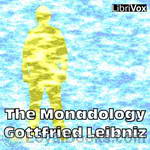 The Monadology
The Monadology
The Monadology (La Monadologie, 1714) is one of Gottfried Leibniz’s best known works representing his later philosophy. It is a short text which sketches in some 90 paragraphs a metaphysics of simple substances, or monads. What he proposed can be seen as a modification of occasionalism developed by latter-day Cartesians. Leibniz surmised that there are indefinitely many substances individually ‘programmed’ to act in a predetermined way, each program being coordinated with all the others. This is the pre-established harmony which solved the mind body problem at the cost of declaring any interaction between substances a mere appearance, something which Leibniz accepted... | |
By: Mayne Reid (1818-1883) | |
|---|---|
 Quadrupeds, What They Are and Where Found A Book of Zoology for Boys
Quadrupeds, What They Are and Where Found A Book of Zoology for Boys
| |
By: John W. Campbell (1910-1971) | |
|---|---|
 The Ultimate Weapon
The Ultimate Weapon
The star Mira was unpredictably variable. Sometimes it was blazing, brilliant and hot. Other times it was oddly dim, cool, shedding little warmth on its many planets. Gresth Gkae, leader of the Mirans, was seeking a better star, one to which his "people" could migrate. That star had to be steady, reliable, with a good planetary system. And in his astronomical searching, he found Sol.With hundreds of ships, each larger than whole Terrestrial spaceports, and traveling faster than the speed of light, the Mirans set out to move in to Solar regions and take over... | |
By: John Wood Campbell Jr. (1910-1971) | |
|---|---|
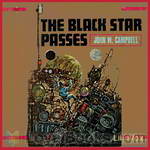 The Black Star Passes
The Black Star Passes
A sky pirate armed with superior weapons of his own invention... First contact with an alien race dangerous enough to threaten the safety of two planets... The arrival of an unseen dark sun whose attendant marauders aimed at the very end of civilization in this Solar System. These were the three challenges that tested the skill and minds of the brilliant team of scientist-astronauts Arcot, Wade, and Morey. Their initial adventures are a classic of science-fiction which first brought the name of their author, John W. Campbell, into prominence as a master of the inventive imagination. | |
By: John Wood Campbell. Jr. (1910-1971) | |
|---|---|
 Islands of Space
Islands of Space
As Earth's faster-than-light spaceship hung in the void between galaxies, Arcot, Wade, Morey and Fuller could see below them, like a vast shining horizon, the mass of stars that formed their own island universe. Morey worked a moment with his slide rule, then said, "We made good time! Twenty-nine light years in ten seconds! Yet you had it on at only half power...." Arcot pushed the control lever all the way to full power. The ship filled with the strain of flowing energy, and sparks snapped in the air of the control room as they raced at an inconceivable speed through the darkness of intergalactic space... | |
 Invaders from the Infinite
Invaders from the Infinite
The famous scientific trio of Arcot, Wade and Morey, challenged by the most ruthless aliens in all the universes, blasted off on an intergalactic search for defenses against the invaders of Earth and all her allies. World after world was visited, secret after secret unleashed, and turned to mighty weapons of intense force--and still the Thessian enemy seemed to grow in power and ferocity. Mighty battles between huge space armadas were but skirmishes in the galactic war, as the invincible aliens savagely advanced and the Earth team hurled bolt after bolt of pure ravening energy--until it appeared that the universe itself might end in one final flare of furious torrential power.... | |
By: Henry Ernest Dudeney | |
|---|---|
 Amusements in Mathematics
Amusements in Mathematics
AMUSEMENTS IN MATHEMATICSby HENRY ERNEST DUDENEYPREFACEIn issuing this volume of my Mathematical Puzzles, of which some have appeared in periodicals and others are given here for the first time, I must acknowledge the encouragement that I have received from many unknown correspondents, at home and abroad, who have expressed a desire to have the problems in a collected form, with some of the solutions given at greater length than is possible in magazines and newspapers. Though I have included a few old puzzles that have interested the world for generations, where I felt that there was something new to be said about them, the problems are in the main original... | |
By: A. T. Mahan (1840-1914) | |
|---|---|
 Lessons of the war with Spain and other articles
Lessons of the war with Spain and other articles
| |
By: William E. B. Du Bois (1868-1963) | |
|---|---|
 The Negro
The Negro
| |
By: Michael Faraday (1791-1867) | |
|---|---|
 The Chemical History of a Candle
The Chemical History of a Candle
The Chemical History of a Candle is a series of 6 lectures on chemistry presented to a juvenile audience in 1848. Taught by Michael Faraday - a chemist and physist, and regarded as the best experimentalist in the history of science - it is probably the most famous of the Christmas Lectures of the Royal Society. Taking the everyday burning of a candle as a starting point, Faraday spans the arc from combustion and its products, via the components of water and air (oxygen, hydrogen, nitrogen, carbon), back to the type of combustion that happens in the human body when we breathe... | |
By: Poul William Anderson (1926-2001) | |
|---|---|
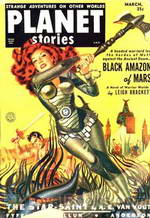 Duel on Syrtis
Duel on Syrtis
| |
By: T. H. Pardo de Tavera (1857-1925) | |
|---|---|
 The Medicinal Plants of the Philippines
The Medicinal Plants of the Philippines
| |
By: Glenn D. Bradley (1884-1930) | |
|---|---|
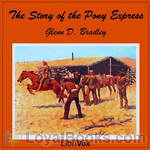 The Story of the Pony Express
The Story of the Pony Express
The Story of the Pony Express offers an in depth account behind the need for a mail route to connect the eastern U.S. with the rapidly populating west coast following the gold rush of California, the springing up of lumber camps, and all incidental needs arising from the settling of the western frontier. Here we learn of the inception of the Pony Express, its formation, successes, failures, facts, statistics, combined with many anecdotes and names of the people who were an integral part of this incredible entity which lasted but less than two years, yet was instrumental in the successful settlement of two thirds of the land mass comprising the expanding country... | |
By: Allan Pinkerton (1819-1884) | |
|---|---|
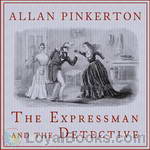 The Expressman and the Detective
The Expressman and the Detective
Allan Pinkerton (1819-1884), a Scotsman by birth and a barrel-maker by trade, settled in Chicago in its infancy and founded the Pinkertons, the world's first detective agency. Though events associated with the agency after his death have tarnished the name, Pinkerton himself was one of the original human rights advocates. He was a dear friend to John Brown, an advisor to Abraham Lincoln, and 80 years ahead of his time in hiring female detectives. He was also stubborn, irascible, and an egomaniac... | |
 The Burglar's Fate And The Detectives
The Burglar's Fate And The Detectives
| |
 Bucholz and the Detectives
Bucholz and the Detectives
| |
By: Robert Sterling Yard (1861-1945) | |
|---|---|
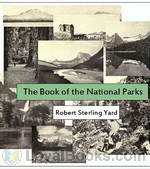 The Book of the National Parks
The Book of the National Parks
Robert Sterling Yard (February 1, 1861 – May 17, 1945) was an American writer, journalist, and wilderness activist. Born in Haverstraw, New York, Yard graduated from Princeton University and spent the first twenty years of his career in the editing and publishing business. In 1915, he was recruited by his friend Stephen Mather to help publicize the need for an independent national park agency. Their numerous publications were part of a movement that resulted in legislative support for a National Park Service (NPS) in 1916... | |
By: Robert Hugh Benson (1871-1914) | |
|---|---|
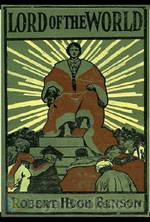 Lord of the World
Lord of the World
“Mr. Benson sees the world, four or five generations hence, free at last from all minor quarrels, and ranged against itself in two camps, Humanitarianism for those who believe in no divinity but that of man, Catholicism for those who believe in no divinity but that of God.” This apocalyptic novel from the early 1900's is sometimes deemed one of the first modern dystopias. | |
By: Michel Verne (1861-1925) | |
|---|---|
 In the Year 2889
In the Year 2889
| |
By: Ida B. Wells-Barnett (1862-1931) | |
|---|---|
 Southern Horrors: Lynch Law In All Its Phases
Southern Horrors: Lynch Law In All Its Phases
Thoroughly appalled and sickened by the rising numbers of white-on-black murders in the South since the beginning of Reconstruction, and by the unwillingness of local, state and federal governments to prosecute those who were responsible, Ida Bell Wells-Barnett wrote Southern Horrors, a pamphlet in which she exposed the horrible reality of lynchings to the rest of the nation and to the world. Wells explained, through case study, how the federal government's failure to intervene allowed Southern states... | |
By: W. Hamilton Gibson (1850-1896) | |
|---|---|
 My Studio Neighbors
My Studio Neighbors
| |
By: James C. Philip (1873-1941) | |
|---|---|
 The Romance of Modern Chemistry
The Romance of Modern Chemistry
A fascinating look back at the state of the art of chemistry 100 years ago, this book by James C. Philip, PhD, an assistant professor of chemistry at The Imperial College of Science and Technology, Kensington, provides a "description in non-technical language of the diverse and wonderful way which chemical forces are at work, and their manifold application in modern life" in 1910. Professor Philip relates many of the key chemical discoveries of early academic researchers in the context of the practical uses to which these discoveries were applied in the early 20th century. | |
By: Oliver Herford (1863-1935) | |
|---|---|
 A Child's Primer Of Natural History
A Child's Primer Of Natural History
| |
By: Margaret W. Lewis | |
|---|---|
 Object Lessons on the Human Body A Transcript of Lessons Given in the Primary Department of School No. 49, New York City
Object Lessons on the Human Body A Transcript of Lessons Given in the Primary Department of School No. 49, New York City
| |
By: Archibald Williams | |
|---|---|
 How it Works Dealing in simple language with steam, electricity, light, heat, sound, hydraulics, optics, etc., and with their applications to apparatus in common use
How it Works Dealing in simple language with steam, electricity, light, heat, sound, hydraulics, optics, etc., and with their applications to apparatus in common use
| |
By: Paul Ehrlich (1854-1915) | |
|---|---|
 Histology of the Blood
Histology of the Blood
This is a textbook on the science of blood and bloodwork by (1908) Nobel Prize winner, Dr. Paul Ehrlich. Should appeal to hematologists, phlebotomists, and just plain folks interested in how our bodies work. | |
By: Rick Raphael (1919-1994) | |
|---|---|
 Code Three
Code Three
| |
 A Filbert Is a Nut
A Filbert Is a Nut
| |
 The Thirst Quenchers
The Thirst Quenchers
| |
 Sonny
Sonny
| |
By: Marie Curie (1867-1934) | |
|---|---|
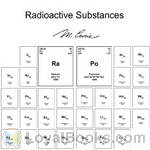 Radioactive Substances
Radioactive Substances
Marie Curie, born in Warsaw in 1867, was a French physicist and chemist famous for her work on radioactivity. She was a pioneer in the field of radioactivity and the first person honored with two Nobel Prizes - in physics (1903) and chemistry (1911). The risks of working with strongly radioactive materials were not known at that time, and she eventually died in 1934 from an illness likely caused by radiation poisoning.Radioactive Substances is the thesis of Marie Curie, presented to the Faculté de Sciences de Paris in 1903, and subsequently published in "Chemical News" vol 88, 1903... | |
By: James H. Schmitz (1911-1981) | |
|---|---|
 The Winds of Time
The Winds of Time
| |
 An Incident on Route 12
An Incident on Route 12
| |